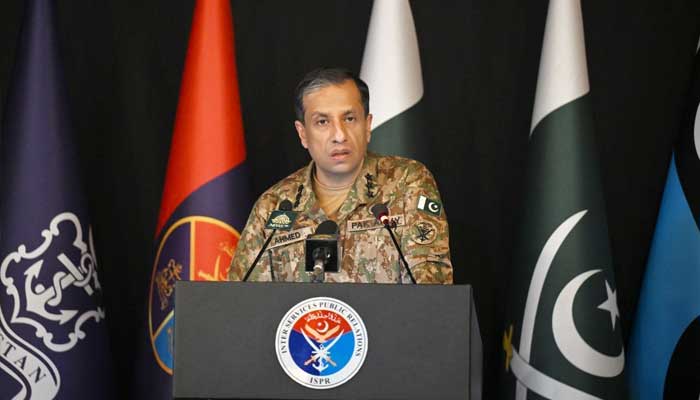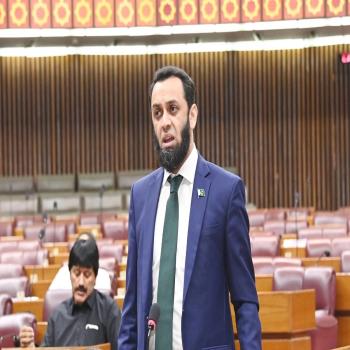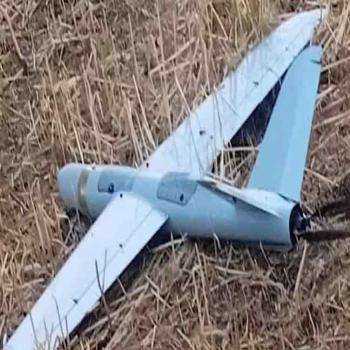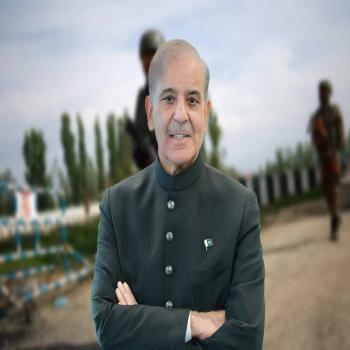DG ISPR Lt. Gen. Ahmed Sharif confirmed that cowardly Indian forces carried out 24 unprovoked strikes across six locations in Pakistan late last night, targeting mosques and innocent civilians.
He revealed that these attacks resulted in the martyrdom of 8 Pakistanis, injuries to 35 others, and 2 people remain missing.
Speaking at a press briefing, DG ISPR strongly condemned the aggression and said, “With the support of the people, the Pakistan Army is giving a befitting response to the enemy's cowardly attacks, and a stronger response will follow if aggression continues.”
Details of the Attacks:
- Ahmadpur East: The deadliest strike occurred here. Four missiles targeted Subhan Mosque, killing five civilians, including a 3-year-old girl, two women, and two men. 31 people were injured, and four family quarters were damaged.
- Muzaffarabad: Seven strikes destroyed Bilal Mosque, injuring a young girl.
- Kotli: Five missile hits on Abbas Mosque killed a 16-year-old girl and an 18-year-old boy. A mother and daughter were injured.
- Muridke: Mughalpura Mosque was hit by four missiles, resulting in one death and one injury. Two people remain missing.
- Sialkot (Kotli Loharan): Two strikes were reported; one missile misfired and another fell in an open field—no casualties.
- Shakargarh: Two strikes damaged a dispensary, but no injuries were reported.
DG ISPR stressed that the attacks were launched without provocation, and were baseless attempts to shift global attention. He added that foreign journalists and media were recently invited to these areas to disprove India's false allegations. Now, international media will again be shown the ground reality of India’s barbaric actions.
Earlier, tensions between India and Pakistan have reached a boiling point after the Director General of Inter-Services Public Relations (ISPR), Lt Gen Ahmed Sharif Chaudhry, revealed that India launched missile attacks targeting Bahawalpur, Muzaffarabad, and Kotli — all from within its own airspace.
Addressing the media on Wednesday, the DG ISPR described the move as a “cowardly and shameful attack,” emphasizing that none of India’s aircraft entered Pakistani airspace. “All of our air force jets are airborne. Let me say it unequivocally — Pakistan will respond to this attack at a time and place of its choosing,” he warned.
This alarming escalation follows the Pahalgam attack on April 22, 2025, in which 26 people, mostly tourists, were killed. Without presenting concrete evidence, Indian Prime Minister Narendra Modi squarely blamed Pakistan and promised harsh retribution. “We will identify and punish every terrorist and those backing them,” Modi declared.
In addition to the missile launches, it barred Pakistani ships from docking at Indian ports, suspended all postal services, and enforced a total ban on imports — direct or indirect — from Pakistan. Most notably, India also announced the suspension of the 1960 Indus Waters Treaty (IWT), a vital agreement regulating water sharing between the two nations.
Diplomatic ties have taken a serious hit. India declared Pakistan’s defense advisors “persona non grata” and drastically reduced staff at both High Commissions. In a tit-for-tat move, Pakistan retaliated by suspending all trade with India and issuing a stern warning: any violation of the Indus Waters Treaty or military misadventure would receive a matching response.
Defense Minister Khawaja Muhammad Asif echoed this sentiment, stating during a televised interview, “A clash with India is now inevitable. We are fully prepared. If they attempt to block our water by constructing anything, we will destroy it.” He dismissed fears of war among Pakistan’s public, assuring that the military is closely monitoring India’s every move. “Their Rafale jets approached our borders, but their systems jammed. If they try to enter, we’ll send them back — in pieces.”
Both nations have also shut down their airspace to each other, further choking off connectivity and deepening the diplomatic freeze.
The international community has begun to take notice. Iran’s Foreign Minister has offered to mediate and help reduce tensions between the nuclear-armed neighbors, though no formal mediation has begun yet.
With rhetoric hardening on both sides and military preparedness reaching peak levels, the region faces a serious risk of confrontation. While Pakistan has vowed to respond at its chosen time, India remains defiant and on high alert.
Government’s response:
Prime Minister Shehbaz Sharif visited the ISI Headquarters to review preparations against any conventional threat. Defence Minister Khawaja Asif, also present, later said in a TV interview: “A clash with India can happen anytime. We are fully prepared—whether it’s a surgical strike, ground attack, air raid, or naval engagement. Pakistan will respond at every level, without delay.”
The escalation comes after the April 22 Pahalgam attack in Indian-held Kashmir, which killed 26 tourists. India, without investigation, blamed Pakistan. Islamabad has rejected the baseless allegations and called for a UN-led neutral probe.
Pakistan has raised the issue at the UN Security Council, while civil defence posts in Rawalpindi have been activated. Meanwhile, the United States has urged both nations to de-escalate tensions and work toward regional peace.






